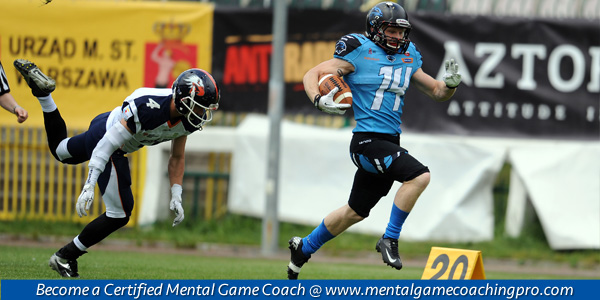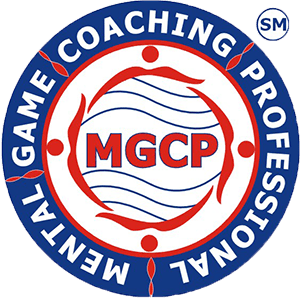
How Goals Turn Into Expectations
I’m sure you help your athletes set goals, right? The research is clear that goal setting can help your athletes improve and strive for excellence.
But when can goals turn into expectations for athletes? This was a recent question I received from one of our MGCP certification students…
First, allow me to define expectations… Expectations are the unwritten demands your athletes have about their results and performance.
I call expectations the SHOULDS that athletes maintain, such as:
- I should not make any mistakes
- I should always perform well
- I should win by…
- I should go 2 for 4
- I should perform up to others expectations
Expectations cause athletes to be judgmental about the quality of their performance. High or low, expectations are a problem for athletes….
Strict expectations can undermine confidence, induce pressure, and focus athletes too much on outcomes and statistics. They can trigger frustration when your athletes think they are not performing up to their expectations.
So when do goals turn into expectations?
First, some athlete avoid setting goals altogether because they think others EXPECT them to achieve their goals.
Second, you might also see some athletes that set good goals, but these goals begin to turn into expectations for them.
One of my athletes said to me: “I don’t set goals because if I do, then my dad expects me to reach them.”
What’s the problem with these two scenarios?
In my view, athletes don’t really understand how goals work and how they are different from expectations.
My answer is that you have to help athletes understand the value of setting goals without the burden of expecting to reach their goals.
Goals are not expectations because goals:
- Help athletes strive for excellence
- Mold athletes’ attention and focus
- Provide direction for training and practice
- Can always be changed or modified easily
You want athletes to understand that goals are not set in stone. Yes, it feels great when athletes can achieve their goals, but goals are not “must haves.”
I suggest to my students to focus on smaller, more immediate goals that will help them perform well in the moment, such as trusting their swing, rather than become obsessed with their ranking or batting average, for example.
Focusing on season ending statistics do not help athletes focus well in the moment.
If you help your athletes understand the utility of goals and how they differ from expectations, they won’t turn goals into personal demands or avoid goals altogether.
Note: Apply for the MGCP certification program. Please contact me if you would like to enroll. Call us at 888-742-7225 or apply here.
Related Mental Coaching Articles
- One Key Strategy for Sports Psychologists
- Athletes Who Resist Changing Their Mindset
- Uncovering Underlying Mental Game Challenges
Mental Coach Assessment System

If you help athletes improve their mental game and want to be more effective with helping them build mental toughness, but don’t have a proven system for identifying and assessing your athletes’ mental game, I can help you…
I view this assessment as a way to “interview” athletes before they come in for coaching–and to improve organization and speed up the coaching process. Today, I call it the Athlete’s Mental Aptitude Profile or AMAP for short. Now you too can learn how to use the AMAP Assessment system with your athletes…
The AMAP System teaches you how to easily identify your athletes’ mental game challenges, what mental game issues to look for when reading the AMAP, and how to do a summary of the AMAP. In addition, you’ll also get follow up questions to ask and how learn about how to drill down on relevant topics.
